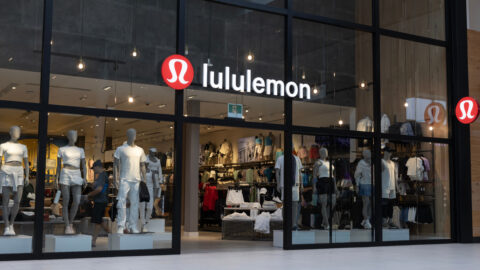You will never hear Brian Berger, CEO of men’s underwear retailer Mack Weldon, apologize for the limitations of selling intimate apparel online. Quite the opposite, in fact: “Our whole business is formulated on the idea that the best way to buy the things we sell is not in a physical store,” said Berger.
The success of the business, which Berger co-founded with Michael Isaacman in 2012, supports his belief. Mack Weldon has been more than doubling its business year-over-year and boasts a customer base of more than 250,000. The brand is adding well over 15,000 new customers each month and maintaining high loyalty rates: 20% of new customers return within 60 days, and they spend, on average, 40% more than they did on their initial visit.
In this exclusive Q&A with Retail TouchPoints, Berger reveals the secrets behind this unlikely e-Commerce success story, including liberal return policies and a strict “no promotional pricing” strategy.
Retail TouchPoints (RTP): You’re selling items where fit and comfort are extremely important. How do you overcome the inherent limitations of e-Commerce?
Brian Berger: These products, men’s underwear, are typically found in the bowels of big department stores and big-box stores. You can’t try them on there, and the sizing can be complicated. We’ve designed our entire experience around convenience for the customer, and more and more customers are getting comfortable with buying things without having the ability to touch and feel them.
Some of the ways we eliminate friction in the buying experience is having a really favorable return policy — not just free returns but a try-on guarantee. The first time you buy from us, particularly with underwear, we will refund you if you’re not happy, or change it out for a different size or silhouette. This not only gives customers a comfort level, it lets them know that these guys are really putting their money where their mouth is.
RTP: Once you have overcome that initial hurdle, what are some of the key ways you build long-term customer relationships?
Berger: There are two things we focus on obsessively. One is making sure we deliver great product. If we do that, any time we talk to our customers about something new, they will engage with us. We’re looking to have an honest, authentic customer dialogue, so we don’t ‘overspam’ or abuse the email relationship. We see the results of that in low unsubscribe and high engagement rates.
Additionally, we do not, and have never, used a promotional pricing strategy. That means we’re able to keep the conversation with the customer about meaningful things — the product itself as well as interesting, fun and clever marketing concepts. It’s never about how much money you’re going to save. Once you introduce that topic, it’s very hard to bring it back to a more meaningful conversation.
RTP: Pricing and promotions are such important levers for most retailers. How do you achieve your business goals without these tools?
Berger: We do offer volume-based pricing, so depending on the value of a customer’s shopping cart, they can save at different levels. Additionally, a big part of our ability to de-emphasize promotional pricing is the product category we’re in. The minute you get into fashion-sensitive or seasonal products, it’s very hard to avoid putting things on sale. If I buy three million units of a product to capture a season and only sell 50% of them, I have to get rid of it by stimulating sales — and at a retail store, it’s the only way to drive foot traffic. We focus on essential items, evergreen products, to go beyond a seasonal mentality.
RTP: Mack Weldon recently moved into activewear and started selling in Equinox in-club shop locations. Why the move toward brick-and-mortar?
Berger: We have had third-party retail partnerships, when there’s been an opportunity to drive positive brand associations. Additionally, customers running into our product in the real world is important in driving a sense of legitimacy — as well as a chance to try the items on.
RTP: How do you plan to continue growing the Mack Weldon business?
Berger: We’re really just scratching the surface in terms of the core domestic market. We see ourselves taking share from the mass marketers, the guys buying 12-packs of underwear at Walmart, but also the guys buying Calvin Klein. We’re also focused on additional product categories that fit our overall criteria, such as polo shirts and sweats, and will be looking to drive newness and innovation there. For example, we infuse silver into our socks, underwear and shirts for its antimicrobial and thermoregulating properties. It kills odors by neutralizing bacteria.
We also see opportunity within our existing customer base to grow our ‘share of drawer’. There’s a lot of potential to drive our underwear-only customers to try other things. Additionally, we currently operate and serve only the U.S. and Canada, so I think there’s opportunity to expand into other markets, such as Western Europe. We get a lot of inquiries from there, and there’s a huge appetite for the things we sell there.
We also want to be more aggressive about partnerships like the one with Equinox, where we have a lot of control over the brand, there’s not any risk to our pricing structure, and we can put our product where the customer is.
RTP: How did you get involved in this business? I understand your background was in consumer technology and digital media.
Berger: I came to this business through the path of being a frustrated customer of these items. I always had an issue shopping for these products — I felt they didn’t really deliver what they promised, and also I didn’t understand the marketing. My familiarity with digital marketing, the data analytics needed to support it and e-Commerce allowed me to combine my passion for doing something in the consumer goods space with a digital distribution model.
RTP: Who have been some of your most important mentors?
Berger: I had a very close relationship with my father, who was an attorney but also an entrepreneur. He built a successful litigation practice, and he and I have always consulted on the management struggles and opportunities that have existed.
Another person is one of our board members, Howard Socol. He comes from a traditional fashion apparel and retail background, including as CEO of Barneys New York and J.Crew. While that background is quite different from how we address our market, I found he has a similar type of mentality — that it’s all about results. He’s also a good person with an enormous amount of integrity, and he has been a good advisor and mentor to me.













